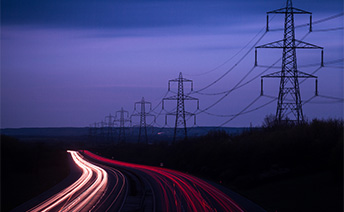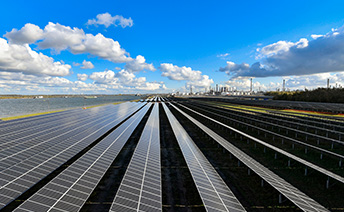Queensland Resources Council (QRC)
QRC represents the interests of Queensland’s minerals and energy sectors,[1] which include the coal, oil and gas industries.
Membership of board/executive committee: None
- 2022 assessment outcome: Some misalignment
- 2021 assessment outcome: Material misalignment
Summary
Shell benefits from its relationship with QRC, in particular from QRC’s advocacy and expertise in environmental and regulatory issues, indigenous participation, and women in mining and resources initiatives. QRC is also a key advocate for the gas sector in Queensland.
We note that in late 2022, QRC launched its Keep Queensland Competitive campaign.[2] The focus of the campaign is on the Queensland government’s decision to increase coal royalty taxes to the highest level in the world, and the consequences for future investment in all resources projects, including clean energy projects. Given the campaign’s focus on coal royalty taxes, and Shell’s position in support of the phase-out of unabated coal power generation by 2040 (where feasible), we have decided not to participate in or contribute financially to the campaign. However, we recognise the concerns about how the decision to increase royalty taxes could affect investment confidence in other major energy and mining projects.
We have found QRC to have some misalignment with our climate and energy transition-related policy positions.
We will urge QRC to:
- Support reducing methane emissions throughout the natural gas supply chain through direct regulations such as performance standards based on robust monitoring, reporting and verification frameworks. We also urge QRC to support ending routine flaring by 2030 or sooner to help achieve such standards.
We will encourage QRC to:
- Support improving energy efficiency through standards and regulatory instruments covering key sectors of the economy.
- Provide more information on its website about its advocacy in support of carbon capture and storage (CCS) and decarbonised hydrogen.
We will remain a member of QRC at the current time. We will continue to track alignment between QRC’s climate and energy transition-related positions and our own, and will be transparent about where we find differences. We will continue to engage the association in areas where we have different views.
Further information
Click on the sections below to read more.
- QRC has stated support for the temperature goal of the Paris Agreement.[3]
- QRC has stated support for the Minerals Council of Australia’s industry ambition to achieve net-zero emissions by 2050.[4] QRC has also stated it will “continue to advocate for state policies that enable the cost-effective reduction of emissions, consistent with the Queensland Government’s goal of net zero emissions by 2050”.[5]
- QRC has stated support for “market-based policies to meet emission reductions goals” that must “prioritise least cost abatement; maintain industry’s international competitiveness; be technology neutral; and deliver a clear, predictable and long-term price signal to enable investment in new generation and also to research and deploy the full range of low and zero-emission technologies”.[6] QRC does not make explicit reference to carbon pricing. In response to Shell’s engagement in 2021, QRC stated that “a carbon price is one example of a market-based policy, but it is not the only example. QRC supports a technology-led approach to emissions reductions which allows the market and resources and energy companies to implement their policies and investments to meet the clearly expressed industry ambition of net zero emissions by 2050.”[7]
- QRC has not stated a position on energy efficiency, but states that its “members are already working to lower emissions and reduce energy costs by improving energy efficiency, through electrification, adopting renewable energy, investing in co-generation and implementing demand management.”[8]
- QRC has stated support for hydrogen, including “clean hydrogen”.[9] [10]
- In its March 2022 State of the Sector report, QRC stated that “hydrogen will also play a major role in decarbonising resource operations, with operators looking to hydrogen as a means of storing renewable energy or powering equipment and haulage vehicles.”[11]
- In its November 2021 statement welcoming the draft Queensland Resources Industry Development Plan, QRC noted the inclusion of emerging technologies such as hydrogen.[12]
No position
- QRC has stated support for “investments in carbon capture and storage (CCS) technology. Investments in technology to abate emissions from coal and gas-fired power will play a key role to facilitate the transition to a low emissions economy.”[13]
- In its 2022 submission about the Environmental Protection and Other Legislative Amendment Bill 2022, QRC expressed concern that proposed measures could hinder “testing for greenhouse gas mitigation measures, such as Carbon Capture, Use, and Storage […] given this is not a prescribed ERA [Environmentally Relevant Activity]”.[14]
- In its November 2021 statement welcoming the draft Queensland Resources Industry Development Plan, QRC noted the inclusion of emerging technologies such as CCS.[15]
- QRC is a member of the Minerals Council of Australia, which has adopted the “Towards Sustainable Mining” framework “to help companies responsibly manage ESG performance and drive continual improvement”.[16] [17]
- QRC has stated in its Energy and Climate Change policy that it does not advocate investment in new domestic unabated coal-fired power generation and supports investments in fuel switching to lower-emissions energy sources.[18]
- In 2022, QRC stated support for the Queensland Energy and Jobs Plan, which includes the target for all publicly owned coal-fired power stations to be operating as clean energy hubs by 2035.[19] QRC stated that “Queensland has Australia’s youngest and most modern coal-fired power station fleet. It is a significant advantage for supporting manufacturing and other types of industry during detailed planning to diversify the energy mix and ensure stability as intermittent energy sources like solar and wind are further integrated into the grid.”[20]
- In late 2022, QRC launched its Keep Queensland Competitive campaign.[21] The focus is on the Queensland government’s decision to increase coal royalty taxes to the highest level in the world, and the consequences for future investment in all resources projects, including clean energy projects.[22] This followed a number of statements from QRC during 2022 in which it expressed its concerns.[23] [24] [25] Given the campaign’s focus on coal royalty taxes, and Shell’s position in support of the phase-out of unabated coal power generation by 2040 (where feasible), we have decided not to participate in or contribute financially to the campaign. However, we recognise the concerns about how the decision to increase royalty taxes could affect investment confidence in other major energy and mining projects.
- QRC recognises electrification as “a critical pathway for reducing the resource sector’s emissions”.[26]
- In 2022, QRC stated support for the Queensland Energy and Jobs Plan, which includes the target for all publicly owned coal-fired power stations to be operating as clean energy hubs by 2035 and two renewable energy targets of 70% renewable energy by 2032 and 80% by 2035.[27]
- QRC supports “diversification of Queensland’s energy mix and supports a technology-driven approach to reach emissions reductions targets. QRC acknowledges the role of coal, gas and renewables in the state’s power generation, and supports investments in fuel switching to lower emissions energy sources.”[28]
- QRC has stated: “Gas will be increasingly important for Australia and our trading partners, as economies make the transition to lower emissions activities and work towards net zero emissions goals.”[29] QRC has also stated that gas remains an important part of the transition to renewable energy and that more gas resources will be needed in the future.[30]
- QRC has not stated a position in support of the direct regulation of methane emissions. QRC has not stated a position in support of ending routine flaring by 2030 or sooner.
No position
No position
No position
No position
No position
[1] https://www.qrc.org.au/about/
[2] https://www.keepqldcompetitive.com.au/
[3] https://www.qrc.org.au/wp-content/uploads/2022/03/QRC-Energy-Climate-Policy_Mar22.pdf
[4] https://www.qrc.org.au/wp-content/uploads/2022/03/QRC-Energy-Climate-Policy_Mar22.pdf
[5] https://www.qrc.org.au/energy-climate-change/11569/
[6] https://www.qrc.org.au/wp-content/uploads/2022/03/QRC-Energy-Climate-Policy_Mar22.pdf
[8] https://www.qrc.org.au/wp-content/uploads/2022/03/QRC-Energy-Climate-Policy_Mar22.pdf
[9] https://www.qrc.org.au/media-releases/qrc-welcomes-recovery-budget/
[10] https://www.qrc.org.au/wp-content/uploads/2021/04/State-of-the-Sector_DEC20_FINAL.pdf
[11] https://online.flippingbook.com/view/978865386/2/
[12] https://www.qrc.org.au/media-releases/qrc-welcomes-release-of-draft-resources-sector-blueprint/
[13] https://www.qrc.org.au/wp-content/uploads/2022/03/QRC-Energy-Climate-Policy_Mar22.pdf
[14] https://www.qrc.org.au/wp-content/uploads/2022/11/QRC-Sub-HEC-EPOLA-Bill-221025-FINAL-no-cover.pdf
[15] https://www.qrc.org.au/media-releases/qrc-welcomes-release-of-draft-resources-sector-blueprint/
[16] https://www.minerals.org.au/towards-sustainable-mining
[17] https://www.qrc.org.au/media-releases/mining-sustainability-initiative-to-highlight-queensland-resources-sector-excellence/
[18] https://www.qrc.org.au/wp-content/uploads/2022/03/QRC-Energy-Climate-Policy_Mar22.pdf
[19] https://www.australianmining.com.au/news/queensland-aims-to-phase-out-coal/ Queensland Energy and Jobs Plan (epw.qld.gov.au)
[20] https://www.australianmining.com.au/news/queensland-aims-to-phase-out-coal/
[21] https://www.keepqldcompetitive.com.au/
[22] https://www.keepqldcompetitive.com.au/
[23] https://www.qrc.org.au/media-releases/qld-govt-must-reconsider-investment-destroying-coal-royalty-tax-hike/
[24] https://www.qrc.org.au/media-releases/bhp-confirms-new-qld-investment-on-hold-due-to-state-govts-new-royalty-tax-regime/
[25] https://www.qrc.org.au/media-releases/cancellation-of-2-billion-qld-mine-a-sign-of-things-to-come-qrc/
[26] https://online.flippingbook.com/view/978865386/4/
[27] https://www.epw.qld.gov.au/__data/assets/pdf_file/0029/32987/queensland-energy-and-jobs-plan.pdf Queensland aims to phase out coal – Australian Mining
[28] https://www.qrc.org.au/wp-content/uploads/2022/03/QRC-Energy-Climate-Policy_Mar22.pdf
[29] https://www.qrc.org.au/media-releases/new-1-billion-qld-gas-project-will-be-welcomed-by-east-coast-market-qrc/
[30] https://www.abc.net.au/news/2022-10-03/lake-eyre-basin-gas-fracking-costs-economically-unviable-report/101494586










